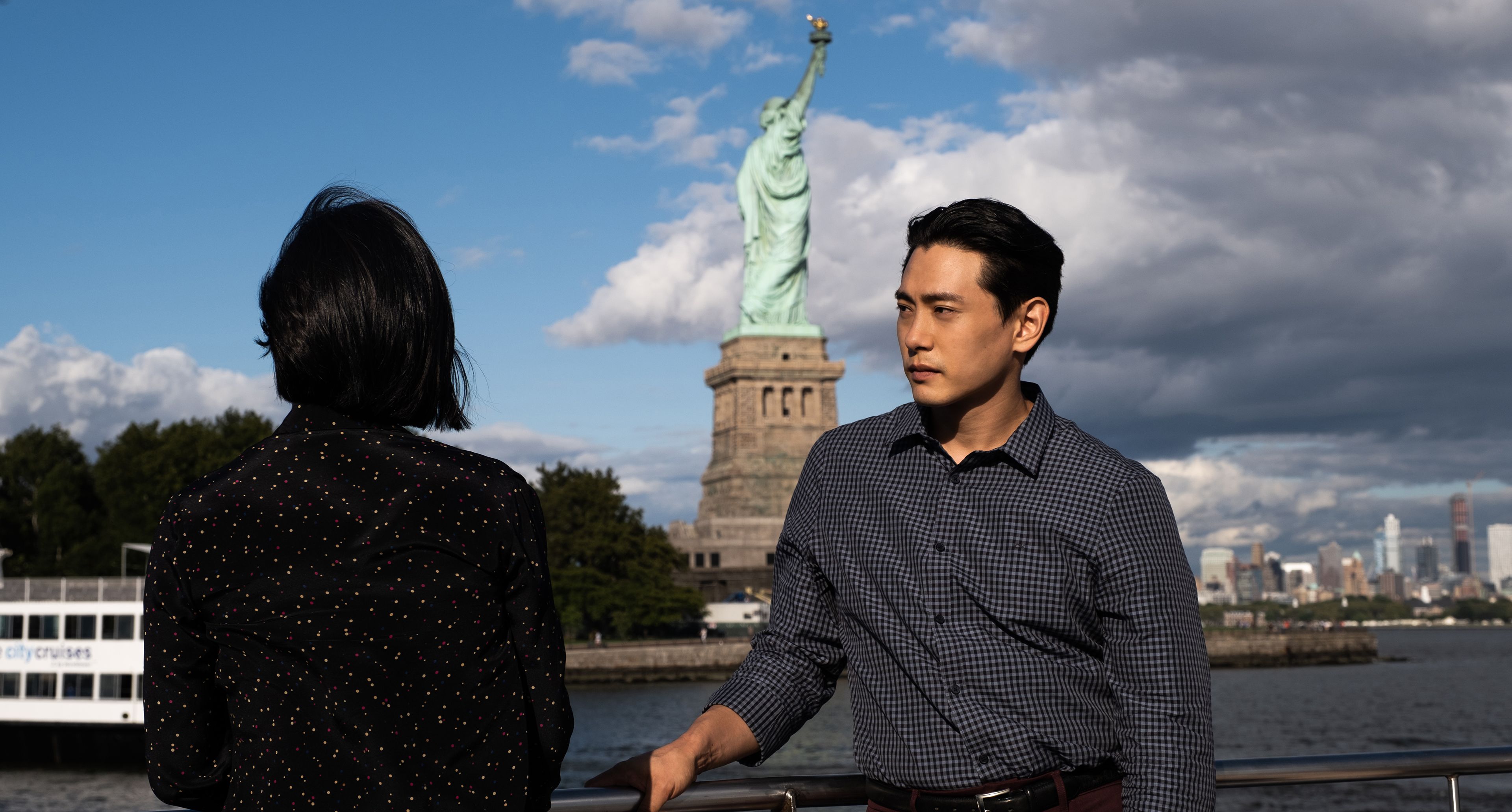One of the hottest tickets at this year’s MIFF is Past Lives, which had the Comedy Theatre near capacity at its Victorian debut on Saturday night, as well as at a matinee on Sunday, both of which were attended by writer-director Celine Song. Song’s acclaimed contemplation of the lives we might have led has one more engagement at the Comedy Theatre this Sunday at 4 p.m., but tickets are selling fast.
The film concentrates on a Korean woman called Na Young (Greta Lee), who changed her name to Nora after her family moved from Seoul to the U.S. 24 years ago, when she was about 12. This was much to the displeasure of her classmate Hae Sung, who competed with her academically and tried to win her heart romantically, in the way of children playing in the park and holding hands in the back seat of a car. You would have thought that would have been the end of their story, but social media allows you to look up names from your past just for kicks. Twelve years after she left, the grown Hae Sung (Teo Yoo) finds Nora through just such a search, and they form an attachment based on Skype and vague dreams of one or the other moving to New York or Seoul.
That doesn’t work out, as things rarely do, and another dozen years pass. Now Nora is married to Arthur (John Magaro), whom she met at a writer’s retreat, not long after she and Hae Sung took a break from Skyping. Having mutually faded back into being strangers once again, the pair are destined to finally cross paths for the first time in a quarter century when a vacation places him in New York. Whether or not it’s a reminder of a romance she never had, it’s certainly a reminder of a path she didn’t take, as he comes to symbolise a life in Korea that never was.
Perhaps the most profound thing about Past Lives is not the particulars of this relationship between not-quite romantic partners. The scarcity of truly great movie romances, especially in recent years, is an ongoing reminder that what strikes us about a movie relationship may be unique to the individual, dependant on whether the dynamic speaks to some specific experience we had, or almost had. Certain movie romances do rise up to a level of universal acknowledgement, but it’s no small feat to convince us that two people we just met are destined to be together, and it’s tragic if they aren’t.
No, in Past Lives, the profound part is the reminder that every decision we make closes a door on some life we may have lived, whether that unlived life is animated by the romantic, the intellectual, the spiritual or the cultural. This story may speak more loudly to anyone who displaced themselves radically from where they once grew up – to immigrants of any kind. There’s no doubt that Nora’s family moving her to America did expose her to academic opportunities she might not have had in Seoul, such that she is now a working playwright dreaming of a Tony. But at what cost? How do we measure the loss of another life that may have been even more enriching, especially if this one has its share of disappointments?
That may not seem like new cinematic territory, but it feels like it with the grace Song brings to the project, in what is almost impossible to believe is her debut feature, having made her name as a playwright. Lee, her lead actress, is similarly late blooming into something luminous, having earned a few bit parts in television in recent years (Russian Doll) before bursting out here with the emotional depths of which she is capable. That’s not to say Nora is a role that requires large displays of emotion, even if the child version of the character supposedly cried every day (especially when she got a lower test grade than Hae Sung). It’s to appreciate how the longer continuum of her life’s emotional journey is present in the character, one who is essentially fully American but never really resolved her departure from Korea, never really reckoned with the notion that it would be permanent.
The two men who – it isn’t a spoiler to say – vie for her affections are also compelling parts of this triangle. Yoo’s Hae Sung, whom Nora describes as “very Korean,” may not fully understand his own depth of feeling for this girl who left at a time when they should have immediately forgotten each other. He may be capable of a kind of impulsiveness that belies his “very Korean” life plan. Then there’s Magaro, the most familiar face in the cast, whose Arthur is a loving partner who has even tried to learn Korean, but who may not be enough for Nora – and he knows it.
There may be some variances in mileage on the details of Past Lives. But anyone who is either a romantic at heart, or nostalgic for some no longer accessible part of their own history, will unfocus their eyes in a wistful fugue state at one point or another. The past is always present, if you’ll allow the play on words, and Song’s film portrays its power over us in a way most films cannot.
Past Lives has one more showing at MIFF on Sunday, August 13th at 4 p.m. at the Comedy Theatre. You can purchase tickets here. Past Lives comes to Australian cinemas on August 31st.


